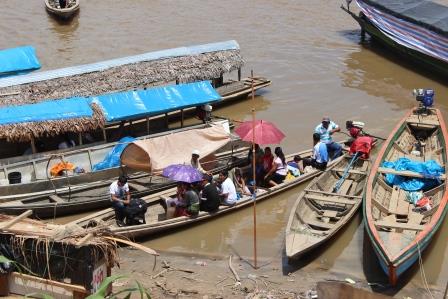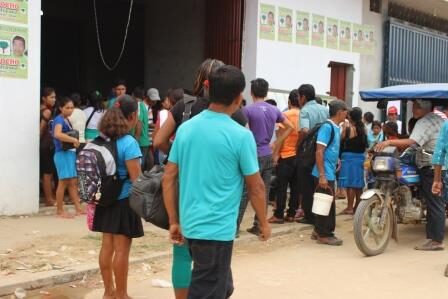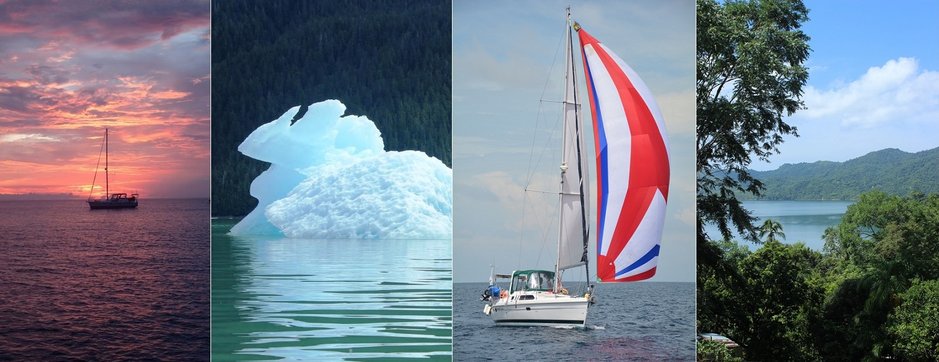So you think you’ve been in the middle of nowhere? Not unless you’ve been where we ended up today – the most distant human outpost up the Amazon River in Peru. There are no humans that live further into the jungle than where we are staying tonight. But we get ahead of ourselves… Our story starts in Iquitos where the guides picked us up in a van at 9am this morning. We left Iquitos and drove out to Nauta which is where the boat landing is to take us up river. We drove around touring the town in Tuk-Tuk’s. Tuk Tuks are the most common form of transportation here. There are 50,000 of them in Iquitos – the largest number in any city in the world.
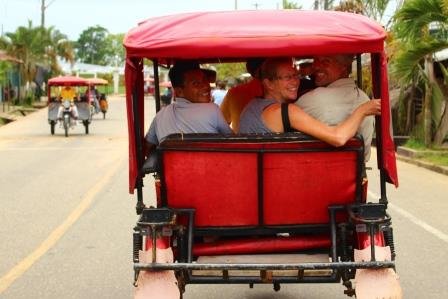
First stop was a turtle sanctuary where the town is trying to save the last of the Giant Water Turtles.
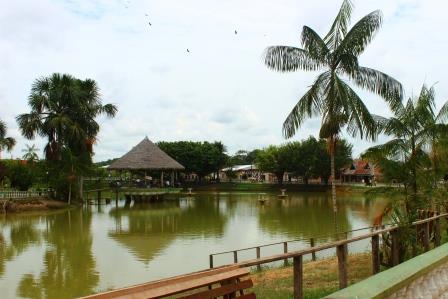
There our guide, Juan Carlos explained about the paintings on the wall in the background – each depicting a different Amazonian legend.
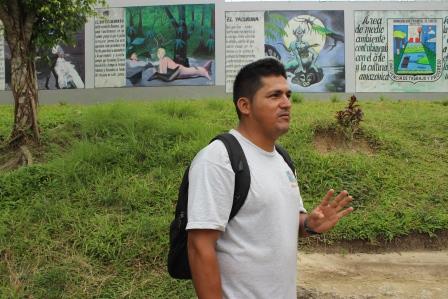
Then it was time to feed the turtles.
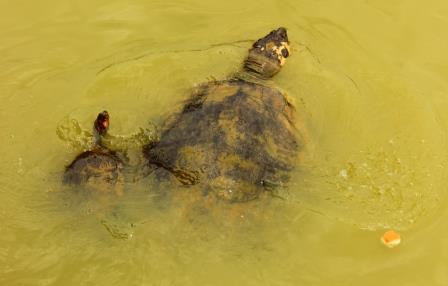
But the Paiche fish had to get their share too.
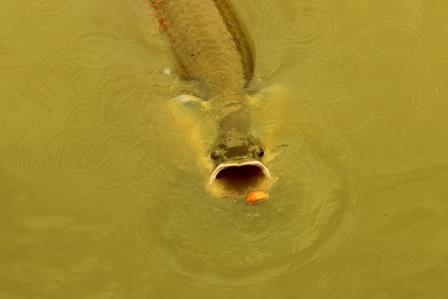
We then toured around the town a bit.
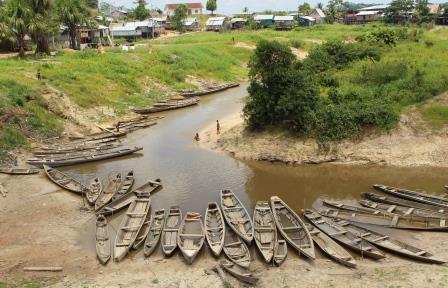
And wandered through the market looking for wine, beer and rum. The beer and rum were no problem. And there was what they called wine, alas it was all sweet syrupy stuff. This woman was peeling moriche palm (aguaje) fruit which we had never seen before.
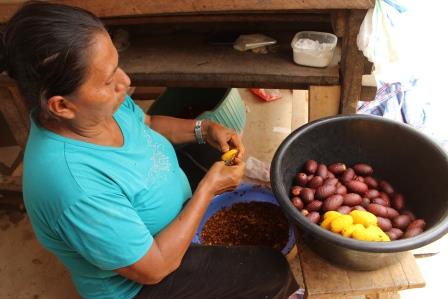
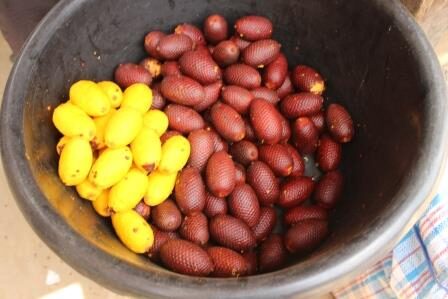
Then it was time to pile into our boat to go up river. The stench in the port due to the open sewers was icky.
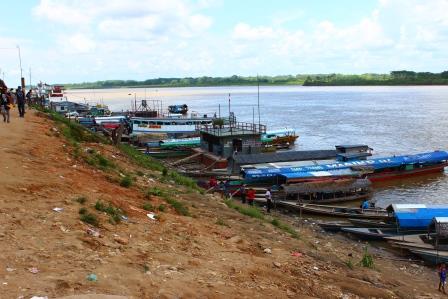
Next to Dave is Gladys our cook.
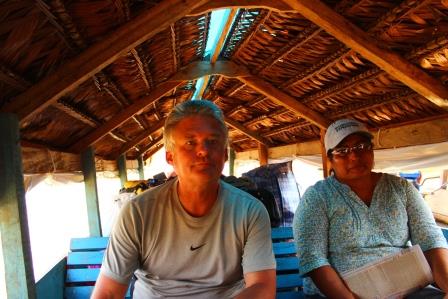
This boat will be our transportation all week.
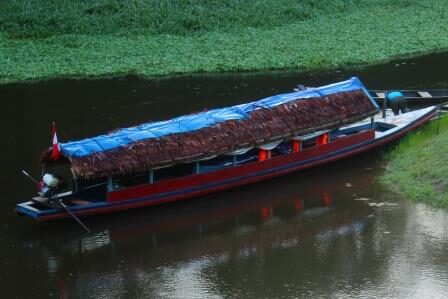
It has a cool thatched roof.
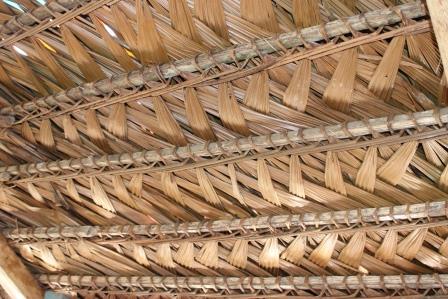
The engines they use in the river here are sort of weird. Talk about a long shaft!
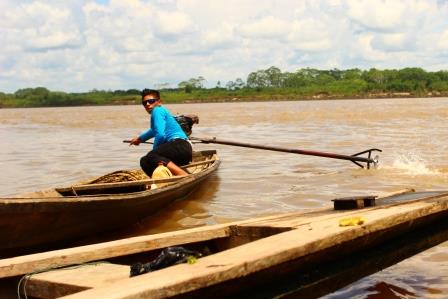
This is the Amazon river. Near Iquitos there isn’t much wildlife because it is such a big city.
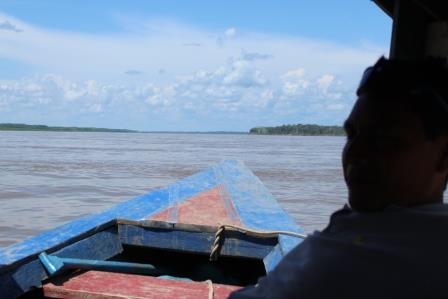
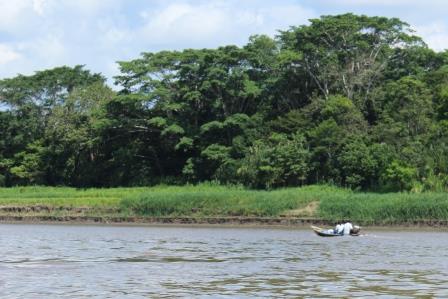
After three hours up river we turned up a small tributary and then, wow! A ton of birds –Egrets, Herons, and Fly Catchers. We’ve never seen so many birds. National Geographic has used the lodge we are headed for to come photograph the wildlife. This video was taken in the small tributary on our way to the lodge. On the front of the boat is Wilder looking out for muddy spots where we might get stuck. At the end you can just see the lodge as we arrive.
And then we finally arrived at the lodge on the Yanayacu River. The stream that runs under the walk way is the Chingana Stream. The green netted building is the main dining hall.
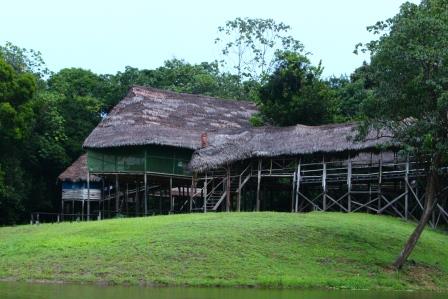
After we arrived it was time to go for a night walk with Wilder. We saw a variety of spiders, scorpions and the like. We saw tree frogs:
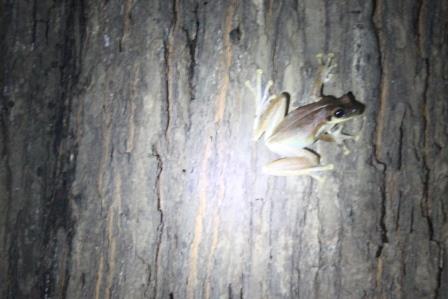
And a dragon lizard.
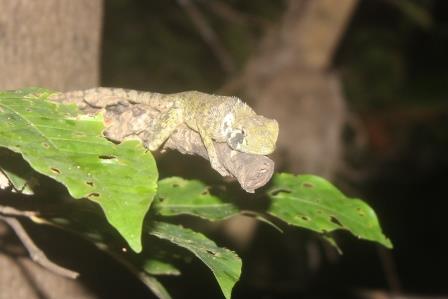
A possum.
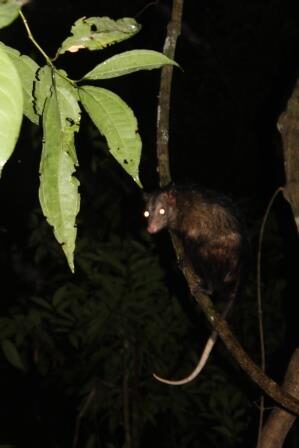
But the highlight of the night was this tarantula that stole the show.
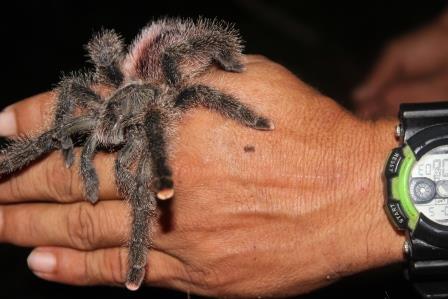
At night they have a generator that runs and lights the cabins and gives us power to recharge our electronic gear – most importantly camera batteries! The cabins are one step up from camping. A bathroom with a shower and beds, but other than that they are somewhat primitive. Note the ever important mosquito netting they told us to use religiously. It’s the jungle! Juan Carlos told us not to be afraid of the sounds we hear at night – we would hear the monkeys howling, the birds, the bugs, and even the electric eels in the river hunting. Huh? Electric eels hunting, you say? What does that sound like? Oh, he said, you will just hear them splashing about as they snatch their prey.
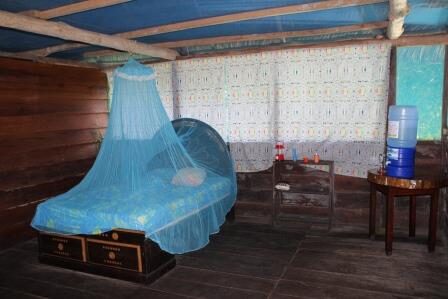
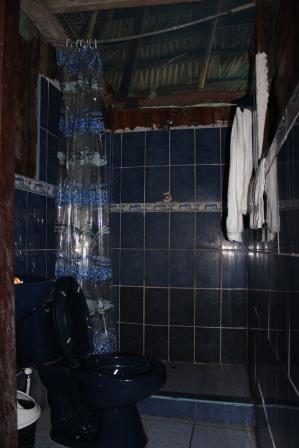
And here’s the kitchen. Imagine cooking for a crowd in here:
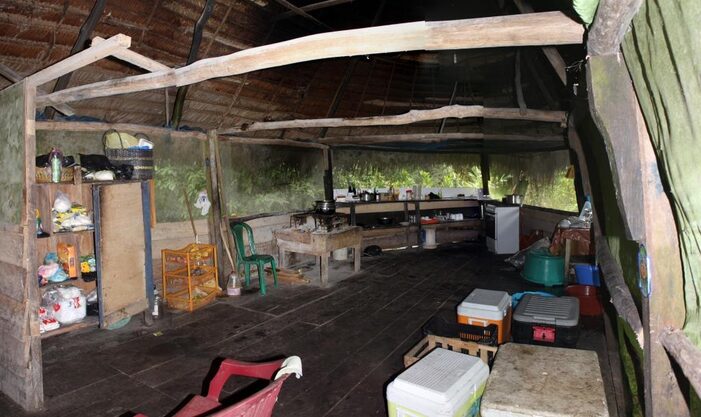
The Amazon region of Peru is the area with by far the most resources – they have oil as well as lots of agriculture. The soil is very rich from volcanic activity and hence the soils don’t need fertilizing. They grow everything from rice to a cane that is used to make ethanol. As a result the Amazonians believe they should be a separate country. They’ve been making a lot of noise about it, so the government gave them their own regional president to try and appease them. But no way will Peru let them succeed from the country because they have the majority of the natural resources. Throughout the day we learned more about the level of corruption in the elections here in Peru. A few interesting items of note… President Fujimori started the war with Ecuador back in the 1980’s because there is a law in Peru that says if the country is at war, they cannot change presidents. So by starting the war he was able to stay in power longer. And it’s downright scary that the English translation for the Spanish used to discuss buying food and liquor for people they are looking to sway is that they will “compromise” the people with a meal or a drink. Voting is mandatory and a fine is levied if you don’t vote. But the fine is gradated. If you live in the jungle its 5 Soles (less than $2 USD), if you live in a city suburb it might be $75 Soles ($25 USD), and if you are part of the government it might be $300 Soles ($100 USD). The government pays for free ferries around Iquitos (which is water locked – no roads) for the people in the outlying areas to come in to vote. Many of them came today in their own boats making the boat landing a zoo. The lines were so long this morning that our guides couldn’t afford the time to vote and hence will pay the fines because they had to pick us up at 9am this morning. The alcohol law that says no liquor sales the day before and day of the election continues to be enforced randomly. Today we bought beer, wine, and rum for the trip up river with no problem in the marketplace.
